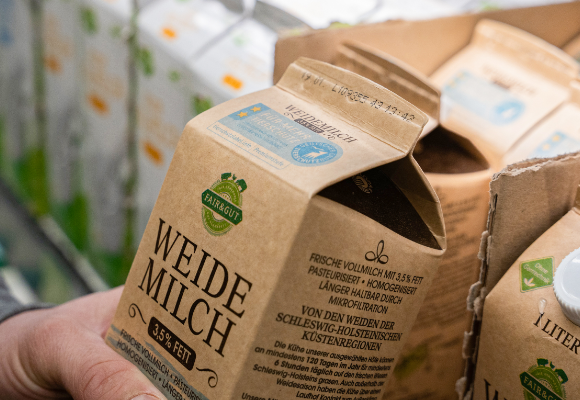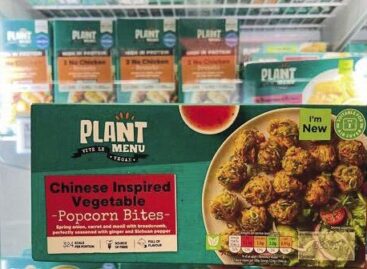Aldi Sources Over 40% Of Fresh Milk From More ‘Animal-Friendly’ Farms
Discounter Aldi has announced that it now sources more than 40% of its fresh milk in Germany from farms that are more ‘animal friendly’ and adhere to husbandry type 3 (outdoor climate) and 4 (organic/premium).

The achievement marks ‘an important milestone’ for the retailer as it achieved its target a year earlier than planned.
In the fresh meat category, products from higher husbandry systems now account for almost 20% of sales, Aldi noted.
In November of this year, Aldi Süd achieved a sales share of more than 25% from husbandry types 3 and 4 on a weekly basis for its fresh meat range for the first time.
Dr Julia Adou, director of corporate responsibility at Aldi Süd, stated, “With the change of attitude, Aldi has set itself ambitious goals for more animal welfare. The fact that we have already reached the next milk milestone today shows us that we are on the right track and motivates us to continue along this path.”
Katrin Beyer, business unit director for category management at Aldi Nord, added, “Despite the challenging external conditions, we continue to consistently focus on the expansion of higher forms of husbandry – both for fresh meat and for drinking milk.”
Related news
Historic price reduction at ALDI
🎧 Hallgasd a cikket: Lejátszás Szünet Folytatás Leállítás Nyelv: Auto…
Read more >The government is supporting dairy farmers with a new measure
🎧 Hallgasd a cikket: Lejátszás Szünet Folytatás Leállítás Nyelv: Auto…
Read more >Related news
State compensation for the victims of Bászna Gabona Zrt. has been completed
🎧 Hallgasd a cikket: Lejátszás Szünet Folytatás Leállítás Nyelv: Auto…
Read more >Festival buzz at the 60th anniversary EuroShop trade fair
🎧 Hallgasd a cikket: Lejátszás Szünet Folytatás Leállítás Nyelv: Auto…
Read more >








